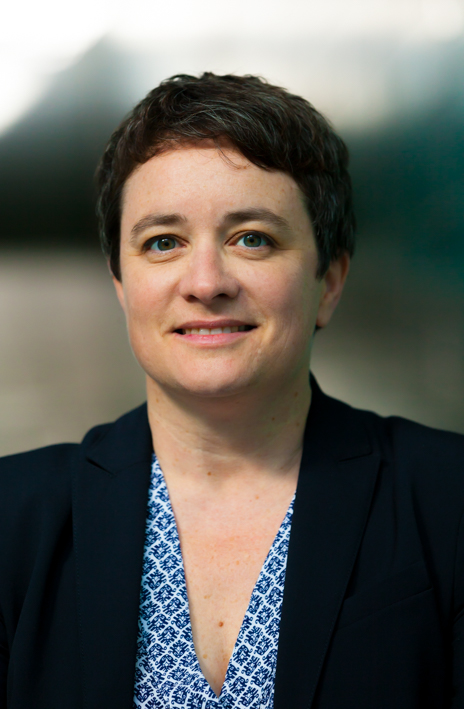
Interview with Professor Hanne Marlene Dahl, University Roskilde (Denmark)
Caroline Ausserer: Is the EU a gender equality and gender policy actor?
Professor Hanne Marlene Dahl: Yes, EU has tried to put gender, gender equality and gender mainstreaming on the agenda in various ways. One can discuss if they have been successful, but they have tried to raise issues due to push from outside the EU by researchers, politicians and NGOs. It is has been raising issues of gender equality in relation to work-life-balance, in relation to quotas for women in boards of private enterprises and is currently trying to improve our knowledge on violence against women. So it is on a small scale trying to raise some gender issues and it is also channelling funds to EIGE, the gender equality agency in Vilnius, to enhance our knowledge and policy tools about gender equality.
If you look back, what are in your view the successes and failures in these areas? What would be your criticism?
H.M.D.: The criticism would be that there are other priorities of the European Union like the social investment state, like the global competition in relation to China and US and so on. In that sense although it is advocating gender equality and gender mainstreaming it is always secondary priority. From a critical perspective, one can ask if the EU is doing it systematically incorporating gender perspective and trying systematically to enhance gender equality. Also whether the tools chosen would well fit. There has been a lot of focus on gender mainstreaming which has been widely debated within the feminist community now for more than 15 years and constitutes such a complicated and ambiguous tool. That would be one of the criticism about some of the not so successful European Union projects. There are also issues which of course have not been raised within EU concerning gender equality.
To which one do you refer?
H.M.D.: I think issues related to elderly care and gender. The increasing way that European welfare states are now trying to tackle the so called “elderly burden” with cash for care policies so that they pay elderly or their families some cash in order to employ migrants or other people to care for elderly people. What we see is increasing migration within the EU to these care jobs. Although the EU has a free market, it is still suffering from a contradiction between the market and social rights. There is a huge contradiction between the ideals of the free market for labor and their social rights which has a huge impact upon both the documented and the non documented migrating care workers and care professionals. There is a whole issue of gender in relation to the increasing problem of elderly care, which does not seem to me that neither the Commission nor the Council is actually being aware of as a huge problem.
Turning to your own research: you work about care policies, what is your approach?
H.M.D.: I am looking at how states are trying to govern, that is to regulate care. My perspective is one of a political scientist and sociologist and my research is mainly within the Nordic welfare state and how they are governing or managing care. I have focussed upon how the state does this from a gender perspective. Is the state changing gender roles, is it doing something good for women? I have a rather critical perspective on the Nordic welfare state. On one hand they have been doing a good job on enabling women to combine paid work and care. They have created extensive social services for children, elderly and sick people. But on the other, the problem is that the gendering of care has been reproduced nearly unchanged.
What do you mean by that?
H.M.D.: From a critical feminist perspective, on one hand one can stress the positive effects of the Nordic welfare state, but on the other hand the care burden has not changed. Such a shifting of a care burden would be something that we could have expected from a state feminist perspective. However, we still have just 5-8 % men doing the paid care work. Although welfare states are trying to describe care in private sector and state sector doing it in a particular way, they are making visible some things and invisibilizing others.
Could you please explain this better?
H.M.D.: When you try to govern care you only have the language available, you will often end up describing just the practical tasks of care, like cooking, cleaning or bathing the elderly person. But there are also lots of invisible aspects that are difficult to describe but essential to care. When these aspects are ignored or not described it means very much that important aspects of care and the qualifications of women are not seen. We have also seen that the round of neo-liberalization has created in the Nordic welfare state particular problems in the sense that we can talk about misrecognition of care-workers or professional carers. Because their knowledge is ignored. We see a kind of de-professionalization, because care workers are seen only to be doing the practical things and their knowledge and their training is ignored. Care is therefore seen just as a question of practical tasks and we can see a struggle about care and their qualifications
Is this just a problem of the Nordic countries?
H.M.D.: In a certain extent, but also the EU as an institution is disregarding this problem. The questions of where care should take place and who is supposed to do it, is increasingly solved with a migrant in the family doing the care work in the home in continental and Southern Europe. But we also have to ask: what are the rights of the carers? What about their situation, their payment, their needs? It is not just a question that labour unions can but also about state’s responsibility. And it is a political matter of gender equality, since 95% of care-work is being done by women and in some contexts, nearly exclusively by migrant women. Some researchers are even talking about “neocolonial” relations in Europe.
We have to ask ourselves what is gender equality in 2014 in the EU? And why are those issues not on the main political agenda?
The issue of elderly care has also to do with the demographic development in Europe.
H.M.D.: The EU has put the demographic time bomb on the agenda together with the OECD, so that there is a high awareness about the emergency of demographic issues. But very rarely gender issues are related to it. This is a problem not just for the aging and longer living women but also for those supposed to take care of them. So far it is seen that almost exclusively women take care of the elderly (paid or unpaid) and this is a gender issue.
Is it also part of your research to analyze the situation of the care-givers?
H.M.D.: Yes, but primarily within the Nordic welfare state. It seems like there is an increasing ethnification or migration into major cities like Stockholm, Copenhagen or Oslo, care-givers coming from outside. It is a diverse picture. Some come from the new EU-countries, like Poland or Latvia, but we also find some coming from outside the EU, like the Philippines.
What are your requests and challenges for the next years? What should be more in the focus of the EU policies?
H.M.D.: One of the challenges would be a more equal distribution of care-giving work for elderly, both non paid work and also paid care giving work. One issue is from a perspective of justice: is it just that 95% of the care of the elderly is provided by women? Is this a fair situation? This is one issue. The second is, is it fair that people from other countries come and help us tackle this care deficit that we experience? I think this is a major issue, because the question is also: is it fair and under what conditions is it fair? We are importing care workers at the expense of the social bonds in the country which are sending these people. I am talking in particular about Poland, Romania and many of the new EU countries. Some of these countries are suffering from the export. Is it fair that we are draining them of carers? These are issues of justice, and the third is whether we will experience a care crisis in the future.
What do you think about it?
H.M.D.: There is an increasing pressure upon care and we have pockets of insufficient care, because we focus so much on productivity in our contemporary society. I think in the future, if the care work is not professionalized and becomes recognized very few people would be willing to take a job in elderly care. There is still so much stigma and misrecognition associated with caregiving work. This is really bad, because we are human beings and we will all eventually become vulnerable and dependent. Receiving and giving care is part of being a human being. In that regard I think we are going to become a less humane society if we are not prioritizing care for elderly. There is a certain likelihood that we might experience a care crisis, because I am not sure that welfare technology is going to solve this problem in the near future nor solved by the efforts to make elderly more autonomous
To sum it up: we have to care more about the care, otherwise a less human society is programmed?
H.M.D.: In caring about care we also need to care about the carers. No good care can come from ignoring the carer. Good care is very dependent upon the person providing the care or being in a relation with the person in need of care – and naturally also upon the resources allocated to the care. I want to stress that: it is important to care about care and that involves also the carers.
Thank you for this interview!
Caroline Ausserer for the webdossier “Europe – a gender equality project” of the Gunda Werner Institute, published in April 2014)


Comments are closed, but trackbacks and pingbacks are open.